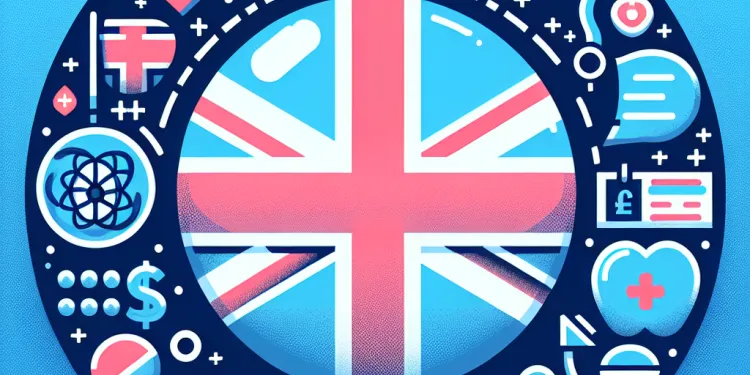
Find Help
More Items From Ergsy search
-
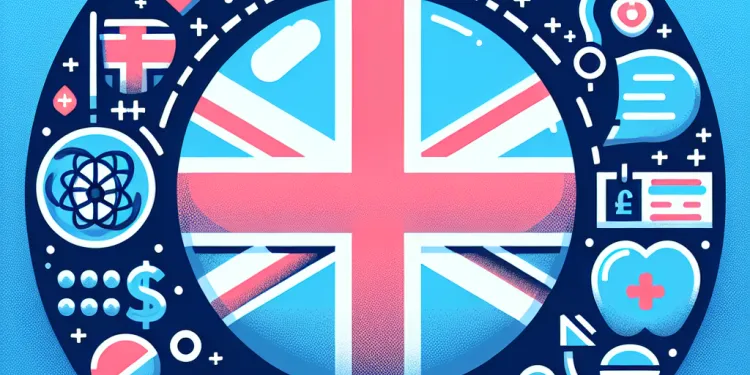
Who is at risk for testicular cancer?
Relevance: 100%
-
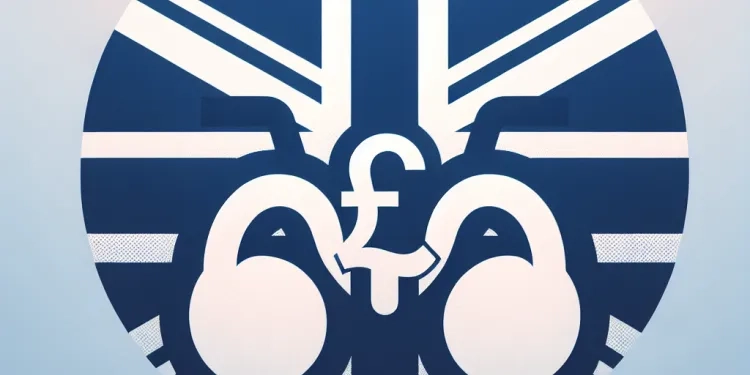
What is testicular cancer?
Relevance: 87%
-

What is testicular cancer?
Relevance: 86%
-

What is testicular cancer?
Relevance: 86%
-
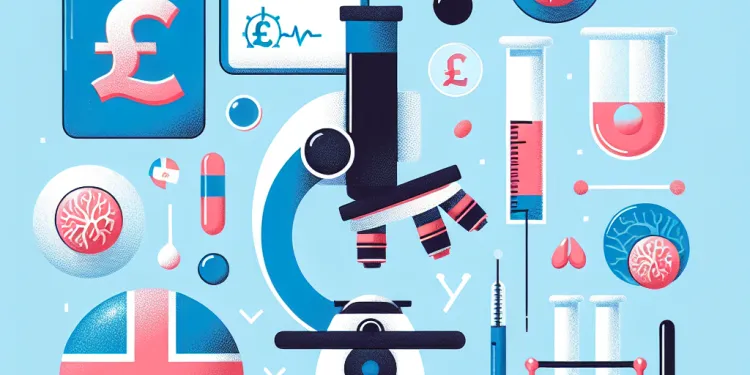
What causes testicular cancer?
Relevance: 85%
-
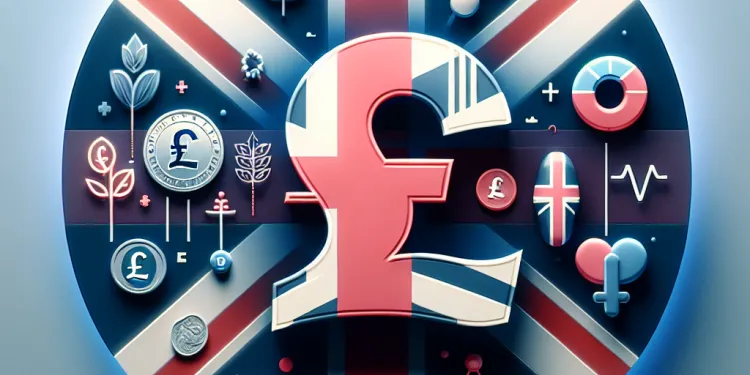
How common is testicular cancer?
Relevance: 84%
-
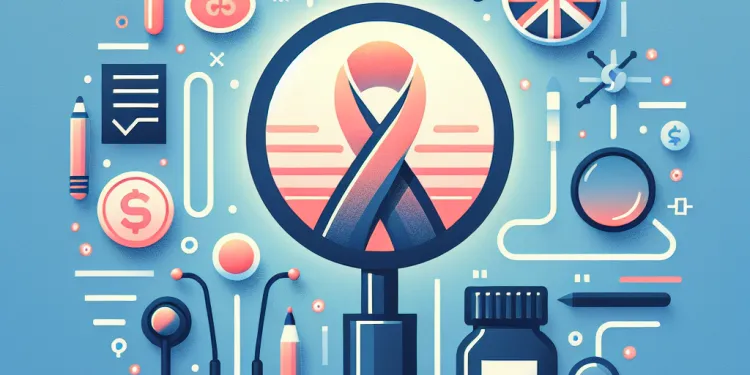
Is testicular cancer treatable?
Relevance: 83%
-
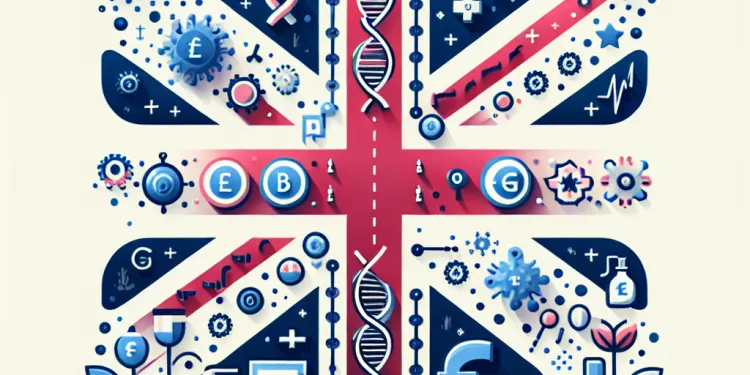
What are the stages of testicular cancer?
Relevance: 79%
-
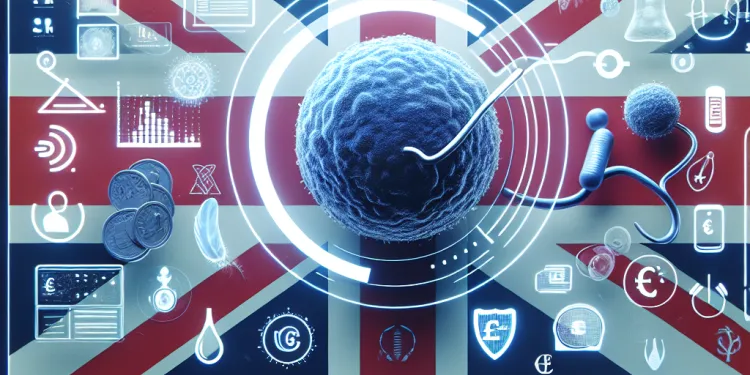
How is testicular cancer diagnosed?
Relevance: 78%
-
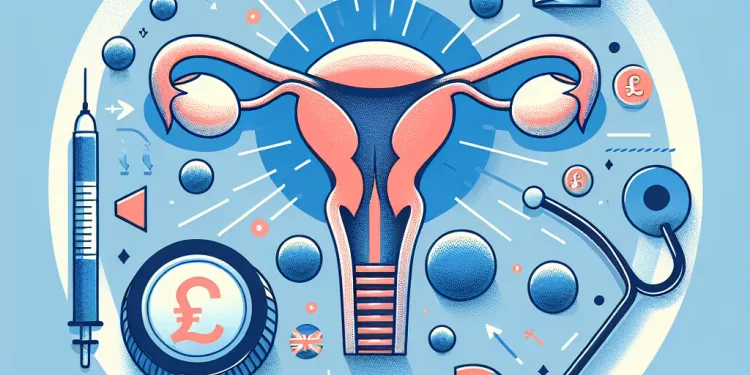
What are the symptoms of testicular cancer?
Relevance: 78%
-
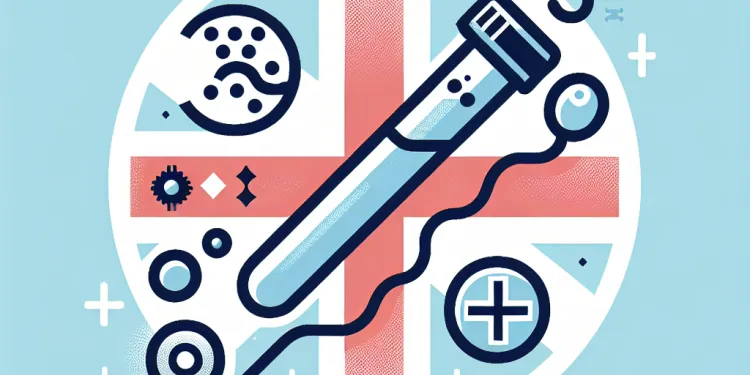
Is fertility affected by testicular cancer?
Relevance: 77%
-

Can testicular cancer recur after treatment?
Relevance: 76%
-

What is the survival rate for testicular cancer?
Relevance: 76%
-
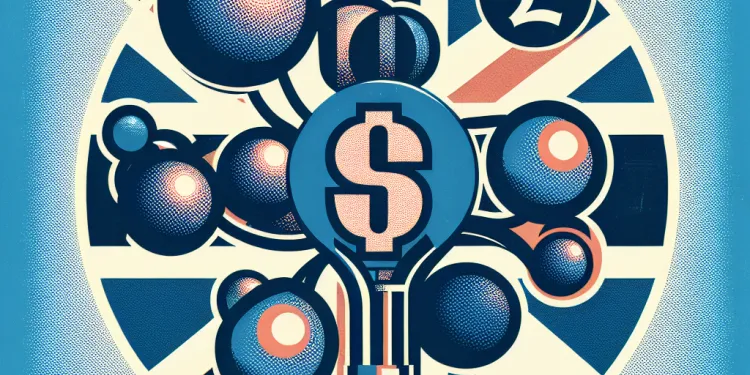
What types of treatments are available for testicular cancer?
Relevance: 75%
-

Can lifestyle changes help prevent testicular cancer?
Relevance: 74%
-

Can testicular cancer spread to other parts of the body?
Relevance: 73%
-

Are there support groups for those affected by testicular cancer?
Relevance: 72%
-
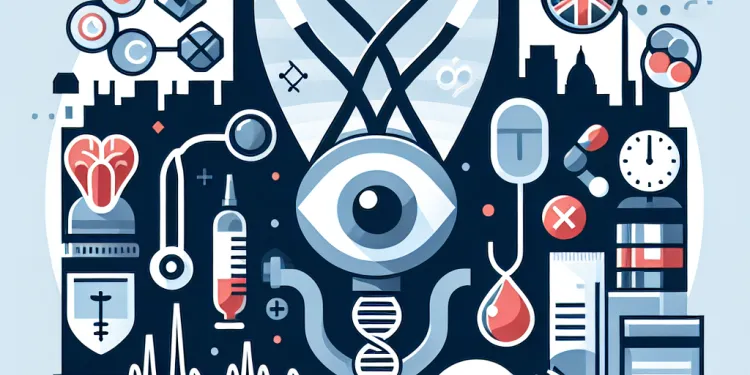
What role do tumor markers play in testicular cancer?
Relevance: 70%
-
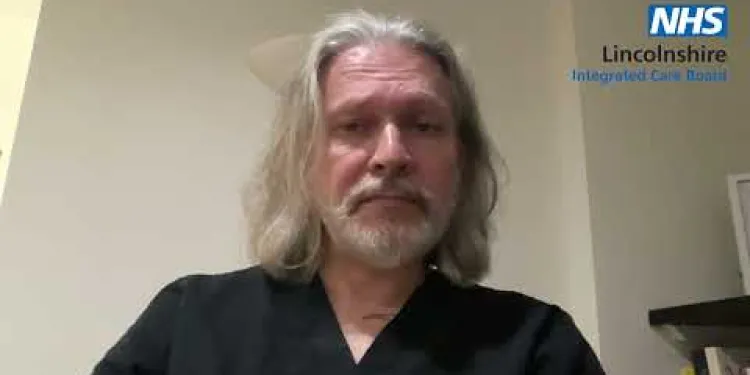
Getting to know your Testicles: Testicular Cancer Awareness with Dr James Howarth, Spilsby Surgery
Relevance: 69%
-

How can I perform a testicular self-exam?
Relevance: 55%
-
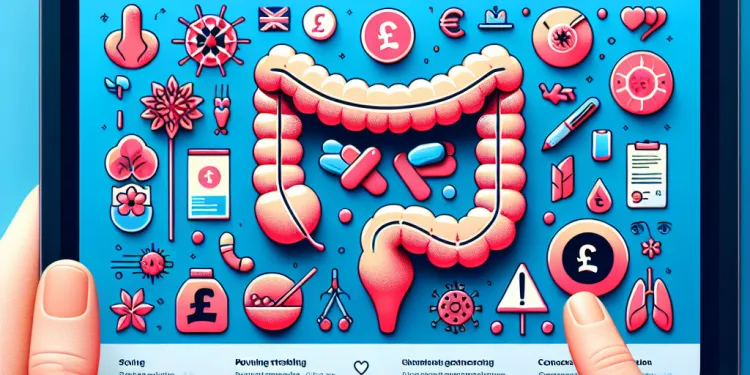
What are the risk factors for bowel cancer?
Relevance: 50%
-

When should I see a doctor about potential testicular cancer?
Relevance: 50%
-
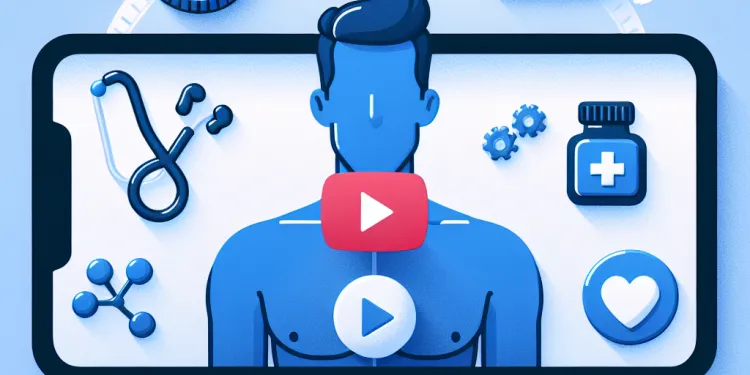
Am I more at risk of prostate cancer?
Relevance: 48%
-
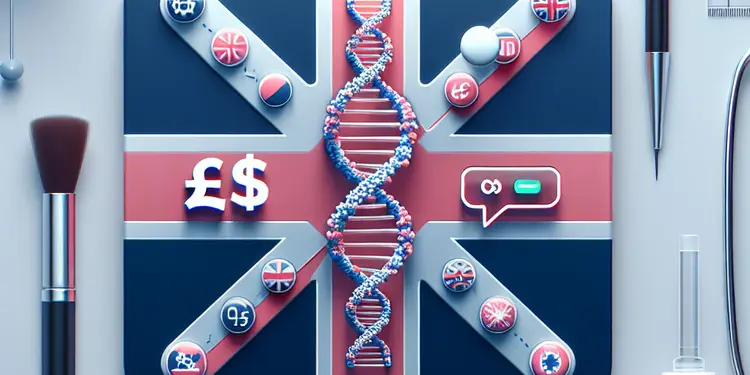
Is genetic screening available for cancer risk?
Relevance: 46%
-
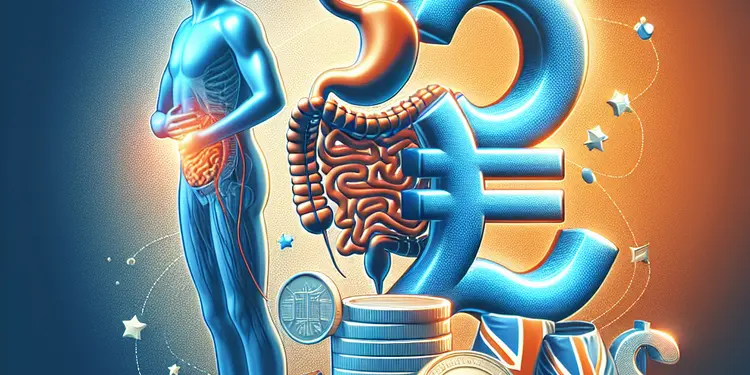
What factors increase my risk of colorectal cancer?
Relevance: 45%
-

Does BPH increase the risk of prostate cancer?
Relevance: 43%
-
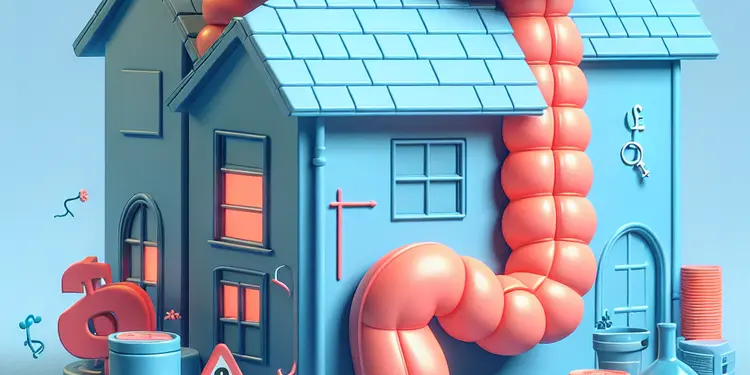
Are there risks associated with home colorectal cancer tests?
Relevance: 43%
-
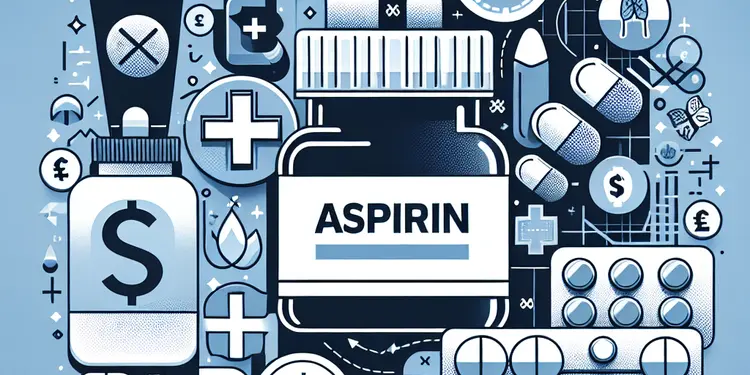
How does aspirin work to reduce cancer risk?
Relevance: 42%
-
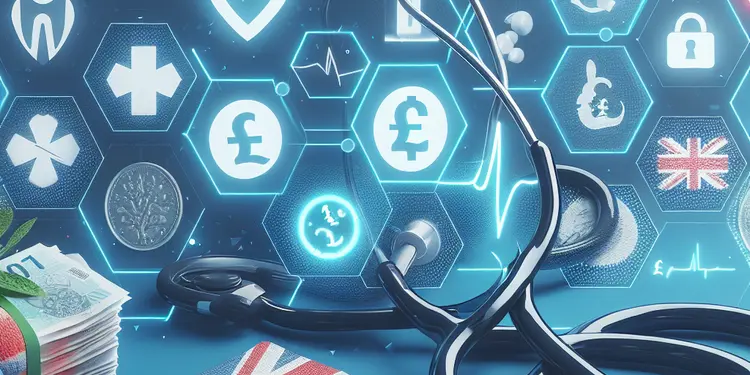
Are there any risk factors that increase the need for cancer screening?
Relevance: 42%
-

Can lifestyle changes help reduce bowel cancer risk?
Relevance: 41%
-
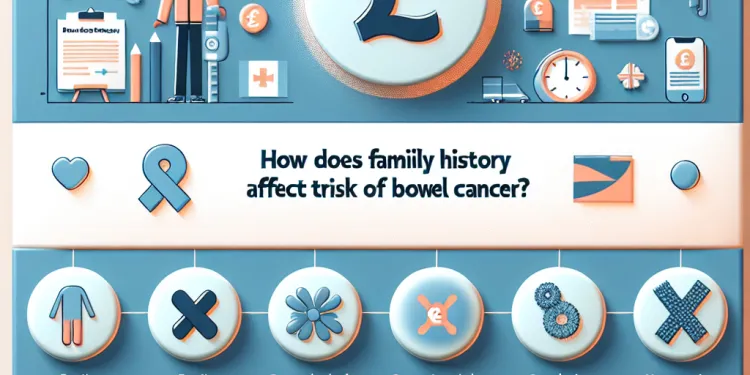
How does family history affect the risk of bowel cancer?
Relevance: 41%
-
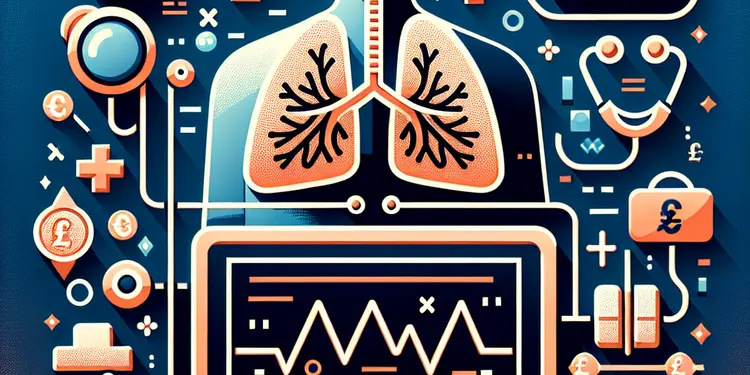
Are there any AI-based tools available for lung cancer risk assessment?
Relevance: 41%
-

What lifestyle changes can help lower the risk of bowel cancer?
Relevance: 40%
-

What role does alcohol consumption play in bowel cancer risk?
Relevance: 40%
-

What role does diet play in the risk of developing bowel cancer?
Relevance: 40%
-
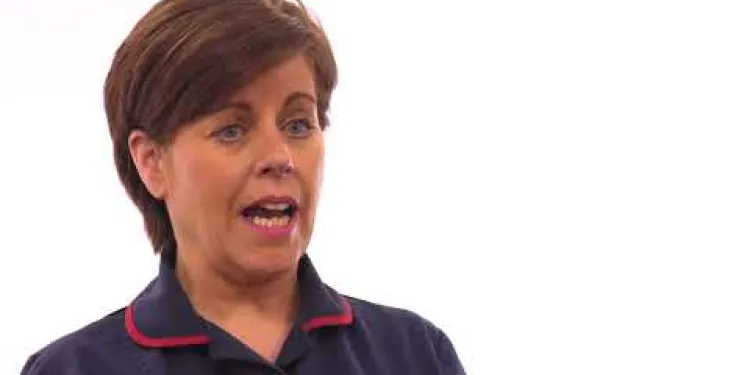
Endometrial Cancer
Relevance: 35%
-
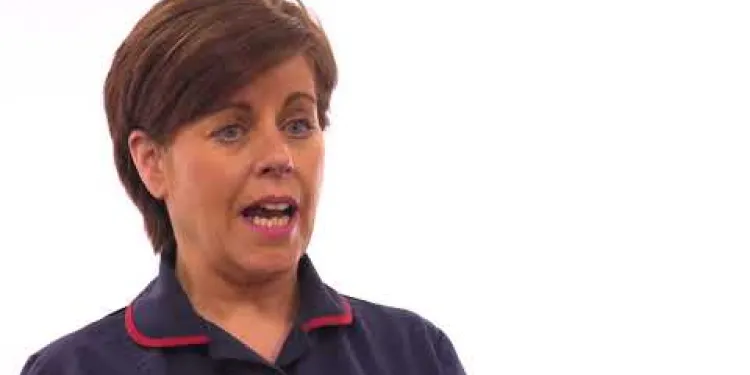
Endometrial Cancer
Relevance: 35%
-
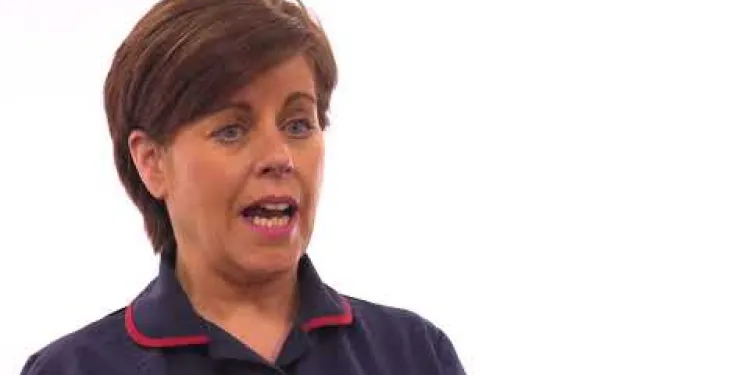
Endometrial Cancer
Relevance: 35%
-
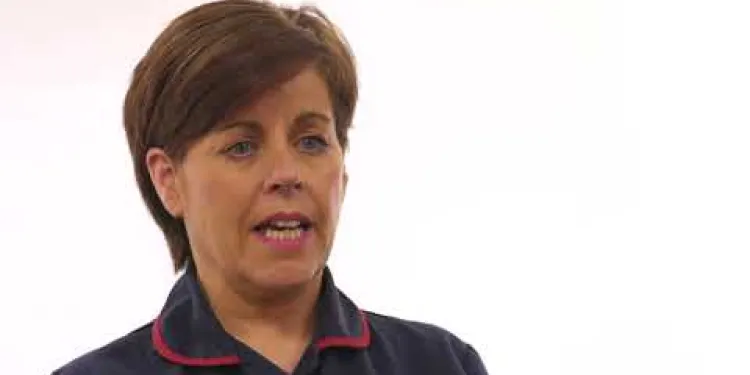
Ovarian Cancer
Relevance: 35%
-
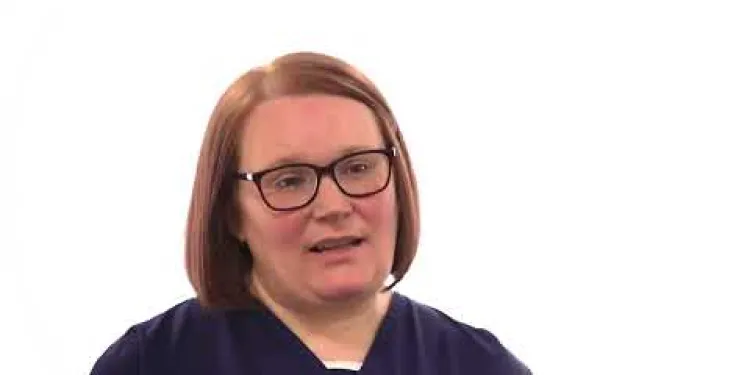
Vaginal Cancer
Relevance: 35%
Who is at Risk for Testicular Cancer?
Testicular cancer is a relatively rare form of cancer, but it is the most common cancer affecting younger men, particularly those aged 15 to 49 years in the UK. Understanding who is at risk can aid in early detection and treatment, improving outcomes significantly. Though the exact cause of testicular cancer is not known, several risk factors have been identified.
Age
The risk of developing testicular cancer is highest among younger men. Approximately half of all cases occur in men between 20 and 34 years old. However, it can affect males at any age, including infants and elderly men, although these cases are less common.
Undescended Testicle (Cryptorchidism)
Men who have had an undescended testicle, a condition known as cryptorchidism, are at higher risk of developing testicular cancer. Normally, testicles descend from the abdomen into the scrotum before birth. If this does not occur naturally and is not corrected surgically early in life, the risk increases. Even if surgery is performed to place the testicle in the scrotum, the risk remains higher compared to men without a history of cryptorchidism.
Family History
A family history of testicular cancer can increase risk. If a man has a close relative, such as a father or brother, who has had testicular cancer, his likelihood of developing the disease is higher compared to those without such a family history. This suggests a potential genetic component to testicular cancer risk.
Previous Testicular Cancer
Men who have been previously diagnosed with testicular cancer are at increased risk of developing cancer in the other testicle. Regular follow-ups and self-examinations are crucial for early detection if cancer recurs on the opposite side.
HIV Infection
There is evidence to suggest that men infected with the human immunodeficiency virus (HIV), particularly those with AIDS, are at an increased risk for testicular cancer. The exact reason for this correlation is not entirely clear, but it is an important consideration for those affected by the virus.
Race and Ethnicity
Testicular cancer is more common in white men compared to men of other racial and ethnic groups. In the UK, men of Caucasian descent are at a higher risk than those of Asian or African descent. This disparity in incidence suggests that genetic and environmental factors may play a role.
Conclusion
While some risk factors for testicular cancer such as age and race cannot be changed, being aware of these risks can encourage early detection efforts. Regular self-examinations and awareness of changes in the testicles can lead to prompt medical attention, potentially improving outcomes and survival rates for those affected.
Who is at Risk for Testicular Cancer?
Testicular cancer is not very common, but it is the most common cancer in younger men aged 15 to 49 in the UK. Knowing who might get this cancer can help find and treat it early, which is very important. We do not know exactly why people get this cancer, but there are some things that can make it more likely.
Age
Young men have the highest chance of getting testicular cancer. About half of all cases happen in men aged 20 to 34. But it can happen at any age, even to babies and older men, though this is rare.
Undescended Testicle (Cryptorchidism)
Men who had a testicle that did not move down into the scrotum when they were babies have a higher chance of getting cancer. This condition is called cryptorchidism. Sometimes surgery is done to fix this, but even then, the risk is still higher than for other men.
Family History
If someone in your family, like your dad or brother, had testicular cancer, your chances are higher, too. This suggests that genes might play a part in getting this cancer.
Previous Testicular Cancer
Men who have had testicular cancer before might get it again in the other testicle. It is important for them to see the doctor regularly and check themselves to catch it early if it comes back.
HIV Infection
Men with HIV, especially those with AIDS, have a higher chance of getting testicular cancer. We do not know exactly why, but it is important to keep this in mind for men with the virus.
Race and Ethnicity
In the UK, white men are more likely than men from other racial or ethnic groups to get testicular cancer. This difference suggests that genes and other factors might influence who gets this cancer.
Conclusion
We cannot change some things, like age or race, but knowing the risks can help with finding the cancer early. Checking your testicles yourself and noticing any changes can help you get medical help quickly, which can improve your chances of getting better.
Frequently Asked Questions
What age group is most at risk for testicular cancer?
Testicular cancer most commonly affects young and middle-aged men, particularly those between the ages of 15 and 35.
Does family history increase the risk of testicular cancer?
Yes, having a family history of testicular cancer can increase an individual's risk of developing the disease.
How does having an undescended testicle affect the risk of testicular cancer?
Men with an undescended testicle (cryptorchidism) are at a higher risk of developing testicular cancer compared to those whose testicles have descended normally.
Are men with a personal history of testicular cancer at risk of developing it again?
Yes, men who have had testicular cancer have an increased risk of developing cancer in the other testicle.
Do certain genetic conditions increase the risk for testicular cancer?
Yes, conditions like Klinefelter syndrome are associated with a higher risk of testicular cancer.
Can testicular cancer occur in older men?
While less common, testicular cancer can occur in older men, although the highest incidence is in younger men.
How does race or ethnicity impact the risk of testicular cancer?
White men are at a higher risk of developing testicular cancer compared to men of African or Asian descent.
Is there a link between HIV infection and increased risk of testicular cancer?
Some studies suggest that men with HIV/AIDS may be at a slightly increased risk of developing testicular cancer.
Does having a testicular abnormality or injury increase cancer risk?
While not a confirmed risk factor, some abnormalities or injuries might be associated with a higher risk of testicular cancer.
Are there any environmental factors linked to an increased risk of testicular cancer?
Certain environmental exposures, including chemical exposures during fetal development, may be linked to an increased risk, though more research is needed.
Can lifestyle factors contribute to the risk of testicular cancer?
There is limited evidence linking specific lifestyle factors directly to testicular cancer risk, but maintaining overall health is beneficial.
Are there any prenatal factors that affect the risk of testicular cancer?
Prenatal factors such as maternal smoking and hormone exposure have been investigated as potential risks, but more research is required for conclusive evidence.
Do hormonal imbalances or conditions affect testicular cancer risk?
Hormonal factors may play a role, but conclusive evidence linking hormonal imbalances directly to testicular cancer risk is lacking.
How does height influence the risk of testicular cancer?
Some studies suggest taller men may have a slightly increased risk of testicular cancer, though the reasons are not well understood.
Does having children affect a man's risk of testicular cancer?
Having fewer children or fathering no children has been linked to a higher risk, potentially due to associated hormonal factors.
Is there a link between vasectomy and testicular cancer risk?
Research has not established a significant link between vasectomy and increased risk of testicular cancer.
Does testicular cancer affect both testicles equally?
Testicular cancer most often affects only one testicle, though it can occur in both.
Are congenital abnormalities in the reproductive system tied to testicular cancer risk?
Certain congenital conditions, such as hypospadias and inguinal hernia, may be associated with a higher risk.
How significant is the role of healthcare access in testicular cancer risk?
Access to healthcare can impact early detection and treatment, affecting outcomes, though it doesn't change the underlying risk.
Can lifestyle changes reduce the risk of developing testicular cancer?
While specific lifestyle changes to reduce testicular cancer risk are not well defined, a healthy lifestyle contributes to overall well-being and may help with early detection.
Who can get testicular cancer the most?
Testicular cancer is a kind of cancer that happens in the testicles. It mostly affects young men and men in their middle ages. This usually means men who are between 15 and 35 years old.
Can having family members with testicular cancer make you more likely to get it?
Yes, if someone in your family had testicular cancer, you might have a higher chance of getting it too.
Does having a testicle that hasn't dropped change the chance of getting testicular cancer?
Some boys are born with a testicle that hasn't come down into the scrotum. This is called an "undescended testicle."
If you have an undescended testicle, it might change your chance of getting testicular cancer. It means you need more check-ups. Your doctor can help you stay healthy.
If you find it hard to read, you can ask someone to read it to you. Listening can help you understand better.
Boys whose testicle does not drop down into the right place (this is called cryptorchidism) might have a higher chance of getting a type of cancer called testicular cancer when they grow up. Boys whose testicles drop into the right place are less likely to get this cancer.
Can men who had testicular cancer before get it again?
If a man had testicular cancer once, he might get it again, but not everyone will. It's important to see the doctor regularly.
Here are some tips to help:
- Visit your doctor often for check-ups.
- Talk to someone if you are worried.
- Write down how you feel each day.
Yes, if a man has had testicular cancer, he might have a higher chance of getting cancer in his other testicle too.
Can some genetic conditions make it more likely to get testicular cancer?
Yes, some health conditions like Klinefelter syndrome can make it more likely for a person to get testicular cancer.
Can older men get testicular cancer?
Yes, older men can get testicular cancer. It is less common than in younger men, but it can still happen.
To help understand more, older men can:
- Talk to a doctor if they have questions.
- Read simple books or guides about health.
- Look for videos that explain health topics in a clear way.
Testicular cancer can affect older men, but it is more often found in younger men.
How does race or ethnicity affect the chance of getting testicular cancer?
Your risk of testicular cancer can be affected by your race or ethnicity.
Here's what to know:
- White men get testicular cancer more than men of other races.
- Asian and Black men get it less often.
Helpful tools:
- Talk to your doctor to learn more.
- Use online tools or apps to understand better.
White men are more likely to get testicular cancer than African or Asian men.
Can having HIV make it more likely to get testicular cancer?
Some research shows that men who have HIV or AIDS might have a higher chance of getting testicular cancer.
Can a problem or injury to the testicles make cancer more likely?
We don't know for sure, but certain problems or injuries might make it more likely to get testicular cancer.
Can things around us make the risk of getting testicular cancer higher?
Testicular cancer is a type of cancer. It can happen in the testicles. The testicles are part of the body for boys and men.
Scientists study what might make the risk of getting this cancer higher. They look at things around us. These things are called environmental factors.
Some environmental factors might include:
- Chemicals used at work or at home.
- Polluted air or water.
- Radiation from the sun or other sources.
If you are worried, talk to a doctor. They can help you understand more.
Using pictures and videos can help explain better. Websites and apps can also make learning easier. Ask a grown-up to help find these tools.
Some things in the environment, like chemicals, can sometimes affect babies before they are born. This might make it more likely for them to have problems later. We need to do more studies to know for sure.
Can the way you live affect the chance of getting testicular cancer?
The way you live your life can change your chance of getting sick.
Healthy habits like eating good food, exercising, and not smoking can help you stay well.
If you have questions or feel worried, talk to a doctor. They can help explain things simply.
Talking to a trusted adult, like a family member or teacher, can also be helpful.
There is not a lot of proof that the way we live can cause testicular cancer. But staying healthy is always a good idea.
What things before birth can make testicular cancer more likely?
Doctors want to know if things before a baby is born can make testicular cancer more likely. Here are some things they look at:
- Did the baby's dad or granddad have testicular cancer?
- Did the baby have a problem with their testicles not dropping down?
- Was the baby born very small?
If you have questions, talk to your doctor. They can help explain.
Researchers are looking at things that happen before a baby is born, like if the mom smokes or if there are changes in hormones. These might affect the baby. But scientists need to study more to be sure.
Can changes in hormones make testicular cancer more likely?
Hormones might be part of why some people get testicular cancer, but we don't have clear proof that they are the reason.
How can being tall affect getting testicular cancer?
Being tall might change the chances of getting a type of cancer called testicular cancer. Testicular cancer is a sickness in the testicles, which are part of the body for boys and men.
If you are tall, it could mean your chances of getting this sickness are different, but not everyone who is tall will get it.
To help with reading, you can try using:
- A ruler or finger to follow along as you read.
- Reading out loud or asking someone to read with you.
- Breaking up big words into smaller parts.
Some studies say that taller men might have a little more chance of getting testicular cancer, but we don't really know why.
Do dads have a different chance of getting testicular cancer?
This means: If a man has kids, does it change his chance of getting a type of cancer called testicular cancer?
Here are some ways to help you understand:
- Ask someone: Talk with a doctor or nurse for help.
- Use pictures: Look at pictures about testicular cancer to learn more.
- Find easy info: Check websites or books that explain things simply.
Having fewer kids, or none at all, can make you more likely to have health problems. This might be because of hormones.
Can having a vasectomy cause testicular cancer?
A vasectomy is a simple operation that stops men from making babies.
Some people wonder if a vasectomy can cause testicular cancer.
Doctors say there is no link between having a vasectomy and getting testicular cancer.
If you are worried, talk to your doctor. They can help you understand more.
Doctors have not found that a vasectomy makes it more likely to get testicular cancer.
Does testicular cancer affect both testicles the same way?
Testicular cancer usually starts in one testicle. It does not often spread to both testicles. If you have questions or feel worried, talk to a doctor.
Tools like pictures or simple charts can help you understand more.
Testicular cancer usually affects one testicle. It can happen in both, but this is less common.
Do problems with how a baby is born linked to a higher chance of getting testicular cancer?
Some babies are born with parts of their body that are not quite right. We call these "congenital abnormalities."
This question asks if babies born with problems in their reproductive system (the parts that help in having babies) have a higher risk of getting a sickness called testicular cancer when they grow up.
To help understand better, you can use pictures or ask someone to explain it with simple words.
Some health problems that babies are born with, like hypospadias and inguinal hernia, can make the risk higher.
How important is going to the doctor for testicular cancer?
When you can see a doctor easily, it helps find health problems early. This is very important for testicular cancer. Seeing a doctor helps because:
- The doctor can check you regularly.
- You can talk to the doctor if something feels wrong.
- The doctor can find problems early when they are easier to treat.
If you have trouble going to the doctor, tell someone you trust. They can help you get the care you need.
Having a doctor or access to a clinic helps find and treat health problems early. This can help you feel better sooner, but it doesn't change your natural risk of getting sick.
Using tools like simple language websites or asking a friend for help can make understanding your health easier.
Can changing how you live lower the chance of getting testicular cancer?
Testicular cancer is a type of cancer that affects a part of the male body called the testicles. You might wonder if making changes in your life can help stop this cancer from happening.
1. Eat Healthy: Eating lots of fruits and vegetables can keep your body strong. Try eating different colors of fruits and veggies every day.
2. Exercise: Moving your body by playing or exercising helps you stay fit and healthy. Try to be active every day if you can.
3. No Smoking: Smoking can harm your body. It is good to stay away from cigarettes or stop smoking if you do.
4. Check Your Body: If you're older, you can regularly check your testicles to notice any changes. If you feel a lump, tell a grown-up or doctor.
5. Visit the Doctor: It’s a good idea to go for regular check-ups, even if you feel fine.
Ask for help if you find hard words or need more information. Family or teachers can support you.
It is not clear what changes in lifestyle can lower the risk of getting testicular cancer. But living a healthy life can help you feel good and might help find cancer early.
Useful Links
This website offers general information and is not a substitute for professional advice.
Always seek guidance from qualified professionals.
If you have any medical concerns or need urgent help, contact a healthcare professional or emergency services immediately.
Some of this content was generated with AI assistance. We’ve done our best to keep it accurate, helpful, and human-friendly.
- Ergsy carfully checks the information in the videos we provide here.
- Videos shown by Youtube after a video has completed, have NOT been reviewed by ERGSY.
- To view, click the arrow in centre of video.
- Most of the videos you find here will have subtitles and/or closed captions available.
- You may need to turn these on, and choose your preferred language.
- Go to the video you'd like to watch.
- If closed captions (CC) are available, settings will be visible on the bottom right of the video player.
- To turn on Captions, click settings .
- To turn off Captions, click settings again.
More Items From Ergsy search
-

Who is at risk for testicular cancer?
Relevance: 100%
-

What is testicular cancer?
Relevance: 87%
-

What is testicular cancer?
Relevance: 86%
-

What is testicular cancer?
Relevance: 86%
-

What causes testicular cancer?
Relevance: 85%
-

How common is testicular cancer?
Relevance: 84%
-

Is testicular cancer treatable?
Relevance: 83%
-

What are the stages of testicular cancer?
Relevance: 79%
-

How is testicular cancer diagnosed?
Relevance: 78%
-

What are the symptoms of testicular cancer?
Relevance: 78%
-

Is fertility affected by testicular cancer?
Relevance: 77%
-

Can testicular cancer recur after treatment?
Relevance: 76%
-

What is the survival rate for testicular cancer?
Relevance: 76%
-

What types of treatments are available for testicular cancer?
Relevance: 75%
-

Can lifestyle changes help prevent testicular cancer?
Relevance: 74%
-

Can testicular cancer spread to other parts of the body?
Relevance: 73%
-

Are there support groups for those affected by testicular cancer?
Relevance: 72%
-

What role do tumor markers play in testicular cancer?
Relevance: 70%
-

Getting to know your Testicles: Testicular Cancer Awareness with Dr James Howarth, Spilsby Surgery
Relevance: 69%
-

How can I perform a testicular self-exam?
Relevance: 55%
-

What are the risk factors for bowel cancer?
Relevance: 50%
-

When should I see a doctor about potential testicular cancer?
Relevance: 50%
-

Am I more at risk of prostate cancer?
Relevance: 48%
-

Is genetic screening available for cancer risk?
Relevance: 46%
-

What factors increase my risk of colorectal cancer?
Relevance: 45%
-

Does BPH increase the risk of prostate cancer?
Relevance: 43%
-

Are there risks associated with home colorectal cancer tests?
Relevance: 43%
-

How does aspirin work to reduce cancer risk?
Relevance: 42%
-

Are there any risk factors that increase the need for cancer screening?
Relevance: 42%
-

Can lifestyle changes help reduce bowel cancer risk?
Relevance: 41%
-

How does family history affect the risk of bowel cancer?
Relevance: 41%
-

Are there any AI-based tools available for lung cancer risk assessment?
Relevance: 41%
-

What lifestyle changes can help lower the risk of bowel cancer?
Relevance: 40%
-

What role does alcohol consumption play in bowel cancer risk?
Relevance: 40%
-

What role does diet play in the risk of developing bowel cancer?
Relevance: 40%
-

Endometrial Cancer
Relevance: 35%
-

Endometrial Cancer
Relevance: 35%
-

Endometrial Cancer
Relevance: 35%
-

Ovarian Cancer
Relevance: 35%
-

Vaginal Cancer
Relevance: 35%


